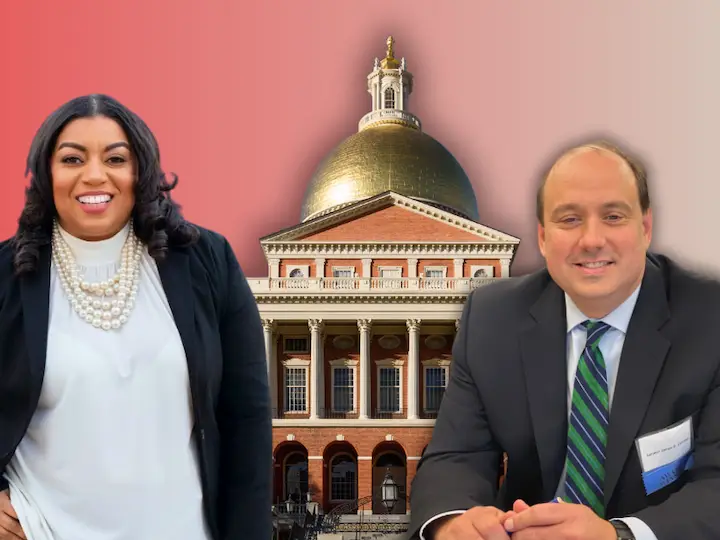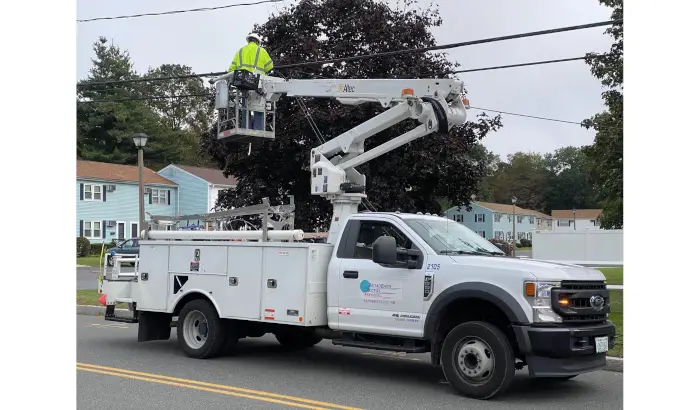Concerned about the “onerous conditions of parole” and longstanding cruel procedures, legislators and reform advocates push major legislative and cultural changes.
On Oct. 20, the Massachusetts Parole Board, under the leadership of chairperson Tina Hurley, met with state legislators from the Black and Latino Caucus, the Criminal Justice Caucus, and the Justice-Involved Women’s Task Force of the Women’s Caucus. It was the first such meeting, Sen. Jamie Eldridge said at a legislative briefing on parole bills at the State House on Oct. 31. He told BINJ the meeting with the board represented a “greater focus on parole” for legislators.
“I’ve never been so encouraged,” Sen. Liz Miranda echoed during the briefing, adding that she had “tried unsuccessfully for four years to meet with the Parole Board.” In a followup email, Miranda wrote, “Having worked on parole reform for many years, I see momentum building amongst legislators.”
Eldridge, who co-chairs the Criminal Justice Caucus, said that being co-chair of the Special Commission on Structural Racism in the Massachusetts Parole Process, which drafted 16 recommendations in December 2021—got him particularly interested in reforming parole.
Parole, which allows a prisoner to serve the remainder of his or her time in the community under strict supervision, has come under fire nationally for its “trail ’em, nail ’em, and jail ’em” approach to community supervision. Katy Naples-Mitchell, an attorney and program director in criminal justice policy and management at the Harvard Kennedy School of Government, moderated the October briefing, and underscored that trend in saying that parole reform is “urgent.”
While she praised the current Massachusetts board for its recent improvements, citing decisions coming out more quickly and dozens of people being afforded “reentry support,” Naples-Mitchell said there is more work to be done. According to the Parole Board’s most recent annual report, 50% of those eligible for parole—2,867 out of 5,738 in 2022—are waiving their right to see the board and choosing to serve more time before they exit prison. Naples-Mitchell said one reason is that they are “worried about the onerous conditions of parole.”
Challenges in equity and programming
Patrick Mayhew, who is known as Exact Proof Allah, spoke virtually during the briefing from Norfolk MCI, stating, “Structural racism is at the forefront of all issues being brought before you today.” According to the American Bar Association, “while African Americans make up only 13% of the US adult population, in 2018, they were 4 times more likely to be on parole” compared to whites.
Eldridge wants more diversity among parole officers, those who interact every day with those on parole. The state’s structural racism commission found that “while Black and Hispanic/Latino individuals made up about half of those under supervision in 2020, the Parole workforce is only 18% non-White [and] less than 10% of field parole officers are Black or Latino.” Field parole officers supervise people right after they are released, i.e. “in the field.”
Lawmakers like Eldridge also want to make parole more equitable. This includes a guarantee that all those seeking parole have a right to a recording of their hearings. When the special commission issued recommendations, the board was taping hearings, but only for prisoners with life sentences. It did not record 2,781 hearings for non-lifers held at county and state facilities. Despite the recommendation for all such proceedings to be recorded, Eldridge said implementation is still not happening.
State Rep. Erika Uyterhoeven also attended the Parole Board meeting on Oct. 31, and cited preparation for the parole process as another problem. In a phone conversation, the representative said the Department of Correction doesn’t have enough programming for prisoners. Uyterhoeven explained how they can get on long wait lists for programs the board recommends, such as Alternatives to Violence or restorative justice circles, but wait lists do not guarantee participation.
“When the board denies someone because they didn’t have the proper preparation, that’s on the DOC,” Uyterhoeven said. In September, the advocacy organization Mental Health Legal Advisors Committee released a data sheet showing the dearth of available programming available for prisoners.
“I’m interested in the parole decision-making process, but the reality is we aren’t giving people the programming, education, and work experience they need,” Uyterhoeven added.
More access plus ending “technical violation” revocations
In an Oct. 3 op-ed for the Washington Post, Vincent Schiraldi, former commissioner of the New York City departments of probation and correction and the author of Mass Supervision: Probation, Parole, and the Illusion of Safety and Freedom, laid out problems for those on parole. “Their homes can be searched without a warrant,” he wrote. “They do not have the right to remain silent; and they can be convicted of, and imprisoned for, noncriminal acts based on evidence that does not need to be proved beyond a reasonable doubt.”
The October parole briefing’s message was that passing two bills could address a number of these concerns. Patricia Garin, a Northeastern University School of Law professor who supervises students representing lifers at Parole Board hearings, called them “common sense bills.”
The first, An Act to Promote Equitable Access to Parole in both the Senate (Sen. Liz Miranda) and the House (Rep. Lindsay Sabadosa), intends to: 1 – expand the Parole Board to nine members with at least four members who “have at least five years of experience in fields of psychiatry, psychology, social work, or the treatment of substance use disorder,” and 2 – add to the board “at least one member who is a formerly incarcerated individual who has completed the parole process.”
Garin said that while the current board is much more “forward-thinking” than past boards, its workload demands expansion. The board not only held more than 3,000 parole hearings in 2022 for lifers and non-lifers, but in its other role as the Advisory Board of Pardons, it will now review more commutation and pardon petitions, per new clemency guidelines issued by Gov. Maura Healey. Additionally, the board reviews petitions for those seeking to terminate parole. Right now, those serving parole-eligible life sentences must have 10 years on parole before applying. The equitable access law would enable anyone who has lived on parole for three years without violating the law to apply for termination of parole.
Khalid Mustafa, who we wrote about in May, has been on lifetime parole for the past 30 years. He spoke at the briefing about the difficulty of being on parole in a “hot zone,” saying it’s like “dancing on banana peels.” Parole officers “violate you more quickly in neighborhoods which have a reputation for more people being on parole,” Mustafa added.
The proposed legislation would also individualize parole conditions, requiring that each condition be reasonably related to the crime of conviction and “no more restrictive than necessary” to assure the person can live safely in the community, Garin said. Right now, even if you do not have an alcohol problem and alcohol had nothing to do with your crime, the board requires people on parole to go to a number of Alcoholics Anonymous meetings weekly.
Stacey Borden, founder of New Beginnings Reentry Services, gave an example at the briefing of why this condition can be not just unnecessary but cruel. Dwayne Blake, a man on parole who has stage-four colon cancer, was confronted by his parole officer after he missed an AA meeting due to his illness, and told he would be sent back to prison. Borden said she is fighting for Mr. Blake.
Naples-Mitchell introduced speakers on the second bill, An Act to Reform Parole Supervision in the Interest of Justice, which has versions presented by Sen. Miranda and Sen. Pat Jehlen. This bill does away with “technical violation” revocations, which plague those on parole. The reason most people are sent back to prison is not for new crimes, but rather for “technicals” like having a drink or missing a meeting with a parole officer. According to the American Civil Liberties Union, in Massachusetts, “Technical violations accounted for 87% of parole revocations in 2017, 88% of revocations in 2018, and 89% in 2019.” People might still be subject to sanctions if they violate their conditions of release, but under the bill language they wouldn’t be sent back to prison (a parole revocation).
Along with reducing reincarceration for violations, the supervision bill does away with the prohibitive parole condition of “association.” As a formerly incarcerated woman, Borden said the people she was closest to were other women she served time with—they are her “support” in the free world. Exact Proof Allah reinforced that it is crucial for many to stay in touch with people they meet behind bars: “The majority of my pro-social network is behind prison walls,” he said. “I’ve never in my life met so many men looking to make positive change in themselves and in the communities they harmed until I came to prison.”
The parole bills still need hearings before the committee on Public Safety and Homeland Security. In the meantime, legislators plan to continue meeting with and questioning the board.





